Update 15/7/21
Dealing with the team at the Cass Review is proving to be difficult at best, an experience that others have noted as well.
While they state they are ‘transparent’, it is clear from responses that they do not appreciate being asked questions, and really do not like being asked difficult questions or being challenged on what they have done. That said, we are still able to glean some nuggets of information from their responses.
In relation to the previous update and the use of CAMHS in the interim solution, it turns out that rather than placing assessments directly under CAMHS, they want to use the CAMHS staff as an integral component of this ‘interdisciplinary team’. How this differs functionally from placing it under CAMHS is not explained. Either way, the outcome will possibly be the same, given that CAMHS is understaffed, underfunded and oversubscribed – leading to a bottleneck outside of GIDS for referrals.
This might be mitigated however. They state :
‘Dr Cass has not stated that children and young people should be required to have a CAMHS assessment in order to access GIDS, her view is that referrals for local assessment and for GIDS could proceed in parallel’
Note: could, not should. This will be open to how NHS England decide to interpret and implement this over complex interim ‘solution’, as is revealed here when I asked:
“If multidisciplinary teams are instituted to replace direct referrals, what measures will be put in place to ensure young people actually get access to treatments, rather than locking them behind more layers of barriers to care until they are adults?”
The response was :
‘The Review is particularly concerned that children and young people receive timely care and access to services to avoid the distress that some are currently experiencing, which is why it recognises the need for some interim measures to manage the current waiting list. As set out above, NHS England and NHS Improvement are responsible for developing the interim model and the Review is unable to respond on its behalf, however your comment has been noted by the Review.’
In other words, not a problem for the Cass Review. They’ve suggested this solution, but don’t seem to particularly care if it actually works or not. Referring in parallel would be in line with stated process within the new adult protocols though.
The Cass Review have continually refused to explain the rationale that led to this highly complex interim ‘solution’, but the following may explain why.
‘NHS England and NHS Improvement has commissioned Dr Cass to undertake the Review and has therefore set the terms of reference.’
Normally when we think of something as independent, it means that the body is free to pursue every avenue without limitation, in order to arrive at what should hopefully be the best solution.
This is not the case for the Cass Review. With NHS England setting the parameters and scope, this by definition limits what the Review can do or suggest – regardless of whether a better way exists outside of the scope that has been set.
It is clear from this that The Cass Review is not independent as the term is commonly understood.
At best, we can say that it is independent in name only, being run outside of direct NHS interference, but with limits imposed on what it can look at or achieve.
And in raising Liz Truss’ comments in Parliament on 26/5/21, they don’t seem to particularly care that theyre being used to set an anti-trans agenda.
I asked:
“Re: Liz Truss & communications – the fact is she has made untrue and damaging comments in Parliament that cast serious doubt on the integrity and independence of the Cass Review. Will you be addressing this statement to ensure the record is correct, and that Liz Truss’s comments are untrue?”
The response was :
‘Liz Truss’ statement “The Cass Review is taking place separately, that’s a matter for the Department of Health” is not untrue. Although at the start of her statement, she says ‘The Review will address’, she immediately corrects herself to say ‘The Consultation will address…’ – it is therefore not necessary for the Review to correct this. The rest of the segment refers to the Consultation and not the Review.’
Unfortunately this is completely wrong, and disingenuous. Truss’ exact words on the 26/5/21 were:
‘The Cass Review is taking place separately, that’s a matter for the Department of Health, but of course we want to make sure that the under 18s are protected from making irreversible decisions about their own future’.
The phrase ‘want to make sure that the under 18s are protected from making irreversible decisions about their own future’ is one used by trans hostile activists, particularly those who oppose treatment for trans young people – known as a ‘dog whistle’ phrase, which is seemingly innocuous to those unaware of it’s common usage within trans hostile groups.
What Truss has done here is signalled to those self same groups that the intent of the review is to remove treatment for under 18s by linking both in the same statement. This is how it has been read and received by trans hostile activists and trans people alike. This statement by Truss undermines the claims of the review being ‘independent’, and both of these are damaging to trans young people. The lack of response or even basic understanding from the Cass Review to such comments compounds that damage, as silence is taken as complicity and agreement.
If the review’s real intent is indeed to ‘ protect under 18’s from making irreversible decisions’ as per Truss’ comments then the stated aim of the Review for providing more timely treatment is directly at odds with Truss’ stated aim of removing treatment, so both simply cannot be true.
This may be an area where the lack of involvement by trans people in the governance of this Review undermines it. Either Truss is being dishonest, or the Review is. I know where I’d place my money, but the complete lack of interest from the review in addressing this speaks volumes about how much they actually care about how they are being used and perceived.
Update from NHS England
In direct relation to the proposed interim solution, it appears that NHS England & Improvement have announced that they’re starting to implement it.
Key points are:
While all of this looks good, and any moves to improve support and assistance for young people while they wait to be seen by the failing GIDS service are to be applauded, it should be noted that:
There is no mention of any trans / gender identity related professional support within these ‘regional teams’.
It states that only more complex cases will involve GIDS. This is rather concerning, as it is completely unclear whether young people will be helped or hampered by these teams if they wish to start socially transitioning prior to being seen by GIDS.
Integrating local services such as education and local authorities could be of benefit in terms of addressing bullying, continuity of counselling, situational awareness & needs, monitoring mental health etc if used in the right way – or could be used as a means of placing even more blocks in the way of those wanting to transition. As with anything, the proof is going to be in the details, which NHS England have yet to release.
Another interesting point to note is that until these teams are up and running:
‘An NHS referral management service is being set up to process referrals from primary care and non-NHS providers.
This service will ensure that referrals are held securely and confidentially according to date, recorded and checked to include all the necessary information required and give high level advice to GPs and other referrers around what other services they may wish to contact to support their patients.
This will free up clinical time in the GIDS, and patients’ waiting time will not be affected by these arrangements if they are accepted on to the GIDS waiting list.’
It would appear from this that young people are not going to be directly referred to GIDS over the next few months, instead the referrals will be ‘held’ and ‘evaluated’ outside of GIDS. How referrals will be handled after the ‘regional teams’ are set up is currently a complete unknown. A side effect of this will be to muddy the data on waiting lists and times even further. The more cynical among us may suggest that’s the whole point.
Update 11/8/21
I’ve been pretty busy of late, but managed to get another set of semi non-responses from the Review, and there have been a couple of updates by the review itself which may be starting to show exactly what way the wind is blowing – and it appears to be an ill wind.
In summary so far:
The review is completely uninterested in defending its own work against apparent misinterpretation by the Government by refusing to even mildly refute Liz Truss’ claims that the review is intended to prevent under 18’s from making irreversible decisions. In refusing to do so, the review undermines it’s own fragile credibility and removes the veneer of independence.
And it still completely refuses to answer even the most basic of questions.
Including:
There have also been two further updates on the review website, here and here.
The first is a letter from the NHS thanking the review for their recommendations. It’s mostly waffle but one thing clearly stands out.
The NHS are asking that the interim model recommended by the review be ‘considered’ as part of the ‘final models’ of delivery.
If you dont think that smells odd you may want to get a Covid test.
Why would the NHS want an unproven, untested and as yet fully unimplemented model of care to be considered as a final model?
I would suggest that, as I surmised from the the first review of this model – its not an interim approach but the final model of care. This would explain why the interim approach was so complete and highly complex.
The second is an update from Dr Cass.
Again, its mostly patronising fluff, promising to address concerns (many of which I have raised in this blog) but completely failing to do so.
There are a couple of standout statements that bear comment though – emphasis all mine.
‘Meanwhile, the public dialogue around gender identity continues to occupy a prominent place in the mainstream media. These broader issues are important and will continue to form the backdrop to my Review and some clearly touch on the activities of the Review. However, some are more relevant to adults and broader societal responsibilities. For that reason, it is crucial that they do not distract me from the core objectives of the Review itself. Some of the sadly polarised public narrative has no place in debates about how best to manage the healthcare for this group of children and young people, many of whom are in a state of extreme distress by the time they are able to access clinical support.’
In yet another display of massively failing to understand trans people – All concerns around trans healthcare for young people are adult concerns. Trans adults were trans kids, and ignoring issues and concerns about trans adults, by trans adults, about service provision for trans young people and kids is just an attempt to further marginalise both trans kids and adults by disassociating the two as if they are seperate, a typically cisgender approach that fails to acknowledge that trans adults were trans kids.
The ‘Broader social responsibilities’ line is really concerning – and to me lines up with the refusal to address Liz Truss’ comments in parliament. Dr Cass doesn’t indicate what these ‘broader societal responsibilities’ are – but this can easily be read as ‘protecting under 18’s from making irrevsible decisions’.
There’s also another hint that they’ve already built the model – and its the one we have seen already recommended and being implemented by the NHS, that is supposedly interim.
‘With that in mind, we have committed to prioritise work to explore how best to develop the workforce outside of GIDS by working with a range of clinical professionals to understand what assessment tools might be needed, what training is necessary, and what the implications are for the longer-term workforce plan.’
Why would a review that that is supposedly investigating all models to bring care up to international standards now be changing priority to investigating a specific set of needs in order to to support the ‘interim approach’?
It’s looking increasingly like the Cass Review is a stitch up for trans healthcare for young people – something I’ve suspected from the start.
Designed to deliver a service whose intent is to bury just how many young trans people there are, lock access to care behind even more barriers and prevent many from being able to transition until adulthood.
Let’s make no mistake, I want to be wrong about that. But it’s not looking good for trans people, kids or adults, in the future.
Update 6/10/21
When I started this blog reviewing the activities of The Cass Review, I was approaching it from a sceptical but good faith point of view, trusting the Review to be true to their word and operate in an ‘open and transparent’ manner, and engaging in good faith.
Wow, was I wrong.
I’ve been communicating on and off since April 2021 in an attempt to get answers to some relatively simple questions, and clarifications on what the reasoning behind some of the decisions they’ve made so far is.
Those communications have now come to an end, with the Review basically going ‘We’ve answered your questions, go away’. But the trouble is, they’ve not answered anything.
In typical cisgender medical community fashion, they havent liked is being challenged on what they’re doing and being asked awkward questions. And after rereading the long chain of emails, where admittedly my frustration at being fobbed off shines through a few times – much of how the exchange was conducted felt strangely familiar.
And that’s because it was.
It felt like I was trying to talk to a trans hostile activist (or a politician). They were answering questions that haven’t been asked, deliberate misinterpretation or completely ignoring what has been asked, denying they’ve said / done something, abdication of responsibility – you name it, it was there. I’ll share a couple of those gems at the end.
It did not feel like dealing with a professional, independent review which is supposedly ‘open and transparent’ – far from it. Admittedly they showed their hand early on by denying trans people representation at governance level, then lying about it, so it should have been expected.
And that’s a problem, because all they’ve done is further entrench the distrust between the UK medical community, NHS and trans community – rather than build bridges. All we ask for is to be included, listened to, and for any questions we ask to be responded to with honesty. Apparently, that’s unreasonable – but we should believe that they are operating in good faith, and trust them.
Just like with the EHRC, GEO, IPSO, OFCOM and Charity Commision, the trans community is lied to consistently by the medical community – and the Cass Review appears to be no different.
Given the Review refuse to engage in good faith, I’ll be back to looking at what they’ve published and picking that apart. So, where are we at?
The Current State of Play
Recap : As it stands, the Review has written to the NHS recommending an approach / series of interim measures supposedly designed to help trans and gender diverse young people get some help in a more timely fashion, and the NHS have embraced this and started putting it in place.
What does that look like? : The CR recommended the implementation of regional MDTs, with heavy involvement from CAMHS and Pediatric services, backed up by an NHS referral management system. None of this is in place yet, despite the NHS stating that it would be implemented ‘within months’.
Problems and glaring omissions.
On the face of it, this seems reasonable. Scratch the surface and we soon start running into issues that neither the CR nor the NHS seem to be interested in addressing.
Does that all seem eerily familiar? It might if you’ve been following the GMC tribunal of Dr Helen Webberley.
The ‘interim approach’ recommended by the Cass Review looks remarkably similar to that used by KOI (Knowing our Identity) – Northern Ireland’s failed GIDS equivalent.
Utilising an MDT (Multi-Disciplinary Team) – an approach we have learned from the tribunal that has no evidence base as to clinical efficacy, but is fantastic for abdicating responsibility when you cause harm – as a first point of call, locking the young person into a cycle of treating anything but the underlying cause of their issues – Gender Dysphoria – until the young person gives up or ages out of the service.
Outside of the medical community we call that Conversion Therapy.
Now, I have no doubt the CR aim is ‘children and young people must be kept central to our approach and considerations’ – and that’s true – but the quiet bit seems to be ‘no child must be allowed to transition’.
This is evident from the flashy graphics the review has been working hard producing, showing the input from Judicial Rulings removing medical treatment from trans youth and the flawed NICE report which completely misinterprets the use of puberty blockers in trans healthcare – both of which conveniently align with the Interim Approach / KOI model.
If I’m honest, I want to be wrong about the direction the Cass Review seems to be headed in – but based on how they are conducting things so far, coupled with the lies about excluding trans people from review governance, following known trans hostile people and groups, the complete inability to answer very simple questions – and not caring about being misrepresented by Liz Truss – I suspect that this is going to be the start of a dark chapter for trans youth in the UK.
To finish on a lighter note and as promised, here are a couple of gems from my interactions with the Review Team.
‘Dr Cass has not recommended an approach, rather she has set out her suggestions as to what she feels it is important for NHS England and NHS Improvement to consider when developing its interim approach’
The letter to NHS Improvement literally says ‘Recommendations to NHS England and NHS Improvement’. This feels like the GMC Tribunal, where WPATHWPATH World Professional Association for Transgender Health https://www.wpath.org are really guidelines and not standards of care, unless it suits the NHS otherwise – then abdicating all responsibility of those recommendations don’t work.
‘We are unclear as to what is meant by ‘simplification of existing processes and procedures at GIDS’
It’s mind boggling that a review dealing with complex medical information and diagnostics headed by an Assurance Group of supposed experts doesn’t know what simplification means, especially in a process review context. I have to question whether the review is actually fit for purpose.
Update 7/10/21
Proof the Cass Review deliberately excluded trans people from the Assurance Group.
You may remember back at the start of the The Cass Review there was a bit of a furore because review website had wording that appeared to show it was deliberately excluding trans voices from the governance process? – if not, we covered this in Part 1 of our ongoing blog following the Cass Review’s activities on 19th April 2021.
The Cass Review denied this at the time, but then surreptitiously changed the website to remove the offending sections without telling anyone.
I went digging via the Freedom of Information Act to see if this was true. I actually wanted to get a copy of the original Terms of Reference as defined by NHS England, as well as any comms relating to it. Should be pretty easy right? Well, it should be, if you’re not hiding anything.
In my previous exchanges with the Review, they categorically stated that the terms of the review had been set by NHS England – who are also funding this so called ‘independent’ review.
However , NHS England claim they have absolutely no documentation in relation to setting these terms of reference. For a review that they commissioned. Which means that either NHS England, or The Cass Review are being somewhat untruthful, or NHS England is so monumentally inept in commissioning things that they shouldnt be allowed to operate. More likely, both.
In an interesting twist, apparently there was only one item of communications in relation to this between the Review and NHS England – an email between Dr Hilary Cass and John Stewart of NHS Commissioning on 6/10/20. The same John Stewart who stated that all GICs accept self referrals at the Women & Equalities Committee GRA Enquiry – a statement that is not accurate itself.
What that email reveals is the following:
As the following extract from the email shows.
‘Composition
Members will be appointed to the Advisory Group by The Chair.
The Advisory Group will not contain subject matter experts, as its role is focused on the governance of the review process. Members will have proven expertise relating to the proper conduct of high-profile public reviews and investigations.
Members of The Advisory Group will be independent of NHS England, and of providers of gender dysphoria services, and of any organisation or association that could reasonably be regarded as having a significant interest in the outcome of the process of review.‘
As you can see, this presents two major and significant hurdles for trans people that amount to deliberate exclusion from the governance of the review – which in itself may be a breach of EA2010 as it looks like both direct and indirect discrimination, and is neither proportionate nor a legitimate means of an appropriate aim.
Let’s take them in turn.
‘Members will be appointed to the Advisory Group by The Chair. ‘
This means only Dr Cass has had any input whatsoever into Assurance Group appointments, and it assumes Dr Cass is coming from a position of neutrality – which is already strongly in doubt. No cisgender person is neutral when it comes to transgender lives, and assuming that they are is deeply flawed.
There is also the issue where it is known Dr Cass followed a number of high profile trans hostile people and groups prior to being appointed, and no trans positive people or groups – so we have someone with apparent trans hostile bias populating the Assurance Group.
‘The Advisory Group will not contain subject matter experts, as its role is focused on the governance of the review process. Members will have proven expertise relating to the proper conduct of high-profile public reviews and investigations.’
Right off the bat we have a reinforcement of the assumption cisgender people are unbiased, and subject matter experts – i.e. trans people & allies, are not – a deeply transphobic starting point, and a clear determination of exclusion. The second point in this paragraph drives that home. There are few, if any trans people in the UK who fulfill the criteria of ‘proven expertise relating to the proper conduct of high-profile public reviews and investigations’ due to major issues with transphobia in every sphere of public life – from the medical professions to public bodies. This is well known, and amounts to systemic discrimination.
Let’s look at the last paragraph.
‘Members of The Advisory Group will be independent of NHS England, and of providers of gender dysphoria services, and of any organisation or association that could reasonably be regarded as having a significant interest in the outcome of the process of review.‘
While this appears to be balanced when taken on its own – it is anything but when coupled with the previous two paragraphs. It appears to provide some scope to allow for a trans individual, rather than an organisation to be on the Assurance Group – but to do that they would have to satisfy the criteria indicated in paragraph 2 – an impossible feat due to the systemic transphobia trans people face.
This de-facto removes any trans positive involvement from the review in entirety, and when taken together the whole composition of the Assurance Board appears to be a carefully worded exercise in deliberate exclusion – and one based entirely on the fatally flawed and faulty assumption that cisgender people are unbiased.
Which as any trans person will tell you, is not the case. What the Cass Review have done is deploy a version of Trans Catch 22 to ensure trans people have no voice in the running of the Review.
What’s more galling is that it was entirely preventable. The could have, for example, convened an additional panel composed solely of trans individuals to provide assurance to the community that this was above board. They chose to exclude instead.
Update 14/10/21
So, today Dr Cass has posted another update on the Cass Review ‘Latest’ page – ‘Entry 5 – Evidence & Epidemiology (October 2021)’
Let’s take a look and see what morsels of information we have to dissect today.
It starts off with a quote from an American anthropologist – ‘Research is formalised curiosity. It is poking and prying with a purpose’, which is interesting because of what neither it, nor the update says.
That the purpose of all the ‘poking and prying’ may not be a neutral act , and can be used for good, or for ill – and there’s scant evidence so far from the Review that it’s for good.
The entire first half of the update is dedicated to telling us how evidence is supposed to be used in clinical practice, and the second half doesnt even look in the direction of the bloody great elephant in the room – that trans people are the subjects of, and not the producers of that clinical evidence.
It completely ignores that there is near nothing in terms of clinical evidence by transgender academics, because due to systemic transphobia in both opportunities and research grants – we are usually sidelined.
Which meanest we have yet another cisgender bias in play – one in the governance process of the Review that has potentially ,illegally locked trans peope out of the decision making process, and other in the clinical evidence review due to the lack of trans led research in the clinical fields.
Neither bias has any correcting measures in place either. I’ve written to them again, but Im not expecting a straight, nor indeed any answer.
But thats ok, because Dr Cass wants to explore two issues, whether hormone treatments for young people are experimental, and epidemiology.
Lets look at the first – are hormone treatments experimental?
Does Dr Cass actually explore this issue? Well, you’ll be probably unsurprised to find that she does not. Instead we get a lament about the fact there are no current clinical trials exploring this, sidestepping that such trials would be highly unethical.
You see, when a clinical trial is conducted it’s usually done as a Randomised Control Trial.
The National Institute for Health and Clinical Excellence (NICE – yes the same NICE that completely misrepresented what using puberty blockers actually does when used for treating gender dysphoria) define it as :
‘A study in which a number of similar people are randomly assigned to 2 (or more) groups to test a specific drug, treatment or other intervention. One group (the experimental group) has the intervention being tested, the other (the comparison or control group) has an alternative intervention, a dummy intervention (placebo) or no intervention at all. The groups are followed up to see how effective the experimental intervention was. Outcomes are measured at specific times and any difference in response between the groups is assessed statistically. This method is also used to reduce bias.’
Which presents a sticky ethical problem that medical professionals tend to ignore when it comes to trans care.
Lets use Puberty Blockers as a relevant example.
To do such a trial on clinical efficacy of PBs we would need the following:
They would then be split into two groups:
As we know, there are no alternative treatments that work in alleviating Gender Dysphoria – indeed the only alternative treatments touted are ‘counselling or therapy’ which is just a euphemism for conversion therapy or used as an excuse to age someone out of the service without providing treatment.
Using a placebo or no treatment would mean puberty progresses, and gender dysphoria worsens for the control group as they enter puberty, deliberately subjecting them to worsening mental health and increased risk of suicide, as well as making pubertal changes that are more difficult and expensive to correct later.
That doesn’t seem particularly ethical, and nor does Dr Cass seem to care about that.
She also misrepresents the NICE reviews on PBs and Cross Sex Hormones, which as we have previously indicated in this ongoing article, they completely misrepresented the use of. So it’s hardly a surprise that they did not lead to a ‘definitive policy recommendation’. When you ask the wrong question to start with, you get the wrong answer – and it’s yet another example of where the review fails due to its exclusion of trans people from the review governance process itself.
But that’s ok because the review has appointed a team from the University of York to conduct the academic research that will help us fill some of these ‘data gaps’.
Who leads or constitutes that team, what area of work they usually do and whether there are any trans members of that team are not mentioned. Which means it’s likely that the answer is going to lead to more trans-hostile intervention and evidence in this Review.
Let’s look at the second issue – epidemiology.
The BMJ define it as :
‘The study of how often diseases occur in different groups of people and why. Epidemiological information is used to plan and evaluate strategies to prevent illness and as a guide to the management of patients in whom disease has already developed.’
First and foremost, the use of this term is profoundly disturbing and shows a complete lack of empathy and understanding about trans people.
Trans people, and trans identities are not a disease.
Use of such terminology is deeply stigmatising and shows exactly where the sympathies of Dr Cass and the review lie – oppositional, as this is exactly the type of terminology used by those trying to mask trans hostile sentiment behind ‘acceptable terminology’
We then get a thinly veiled attempt at both-siding the fact that referrals have increased, predominantly in those assigned female at birth – reflecting yet another trans hostile talking point that this is aberrant and ‘girls’ need protecting, while completely ignoring that those assigned male at birth face inordinately more social stigma, preventing that group seeking treatment.
It’s telling that Dr Cass can’t even bring herself to use the commonly accepted terminology – Assigned Male / Female at Birth, which even the included graph from the atrocious GIDS manages, instead opting for ‘birth registered girls / boys’
This is followed by a comment about no information about non-binary identities, which would be valid if NHS gender services and the medical community didnt largely ignore and invalidate non-binary people when it came to seeking treatment – another point that she completely fails to mention.
The last paragraph is an absolute kick in the teeth though.
‘Taking time to understand the epidemiology will be important, because as with any other situation where there is clinical intervention, it means there will not be a ‘one-size-fits-all’ approach to assessment, support and intervention. Each young person will need an individualised approach to find the right pathway for them. I believe that our evidence-based approach will add significantly to the international evidence in this area and importantly for the review, it will help inform recommendations on how to improve clinical support and provide appropriate treatment for the children and young people who need timely access to NHS services.’
This, coming from the person who recommended a one size fits all approach to the NHS in the form of the ‘interim solution’ (that the NHS wants to be the full solution) – a solution that has no expertise involved, using an MDT method that has no evidence of clinical efficacy, and is based entirely on providing ‘alternative’ treatments instead of treatments that work.
It’s my opinion that The Cass Review is little more than an expensive smokescreen designed to ensure trans young people never receive medical treatment, and every update seems to add to that evidence base.




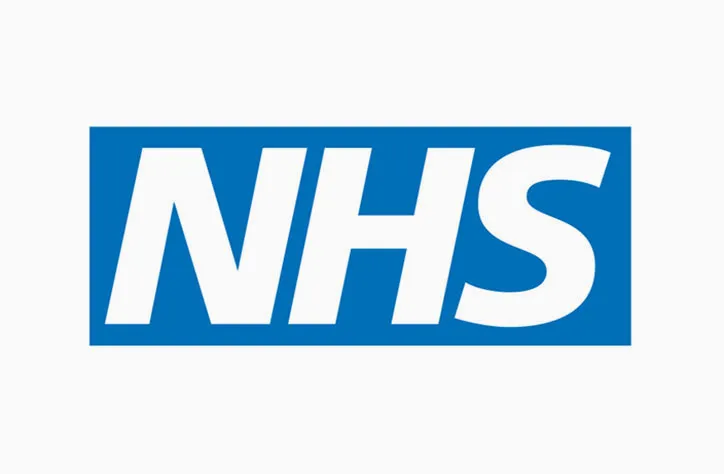
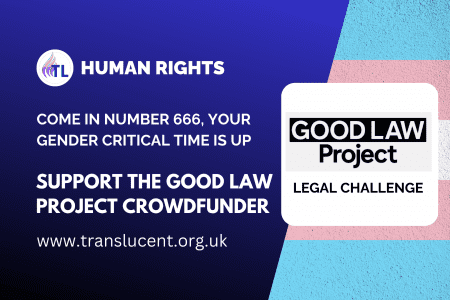
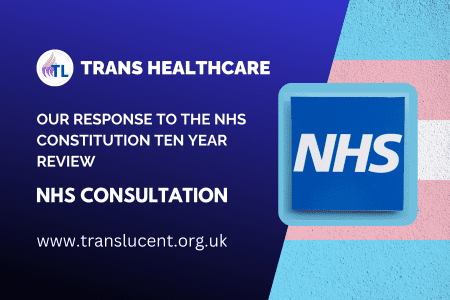
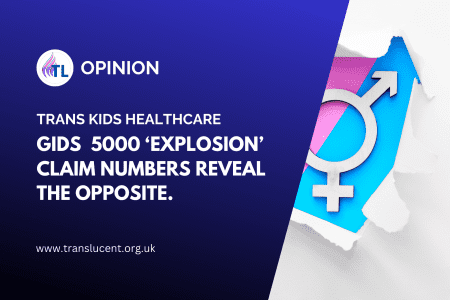
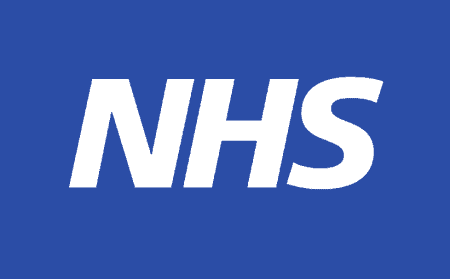
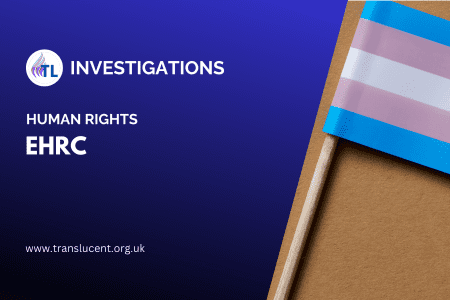
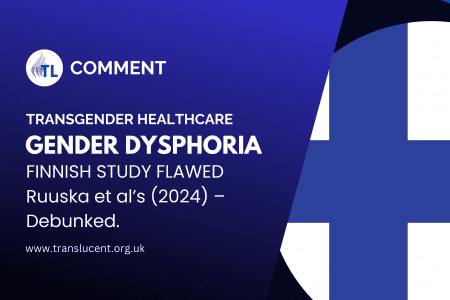
 To provide the best experiences, we use technologies like cookies to store and/or access device information. Consenting to these technologies will allow us to process data such as browsing behaviour or unique IDs on this site. Not consenting or withdrawing consent, may adversely affect certain features and functions.
To provide the best experiences, we use technologies like cookies to store and/or access device information. Consenting to these technologies will allow us to process data such as browsing behaviour or unique IDs on this site. Not consenting or withdrawing consent, may adversely affect certain features and functions.